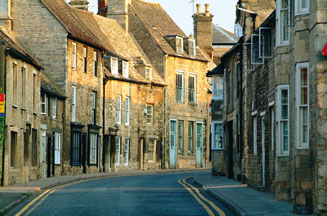
Strict competition regulations are forcing the UK's supermarket chains to find additional ways to expand their empires. Companies including Sainsbury's and Tesco - and, more recently, Waitrose - have been building networks of smaller, convenience-style shops.
Last week, it emerged that Tesco is planning to capitalise on the demise of rural retailers, such as village shops, pubs and petrol stations, by acquiring the sites of failed businesses to use for its Express shops.
A Tesco spokesman confirms that convenience shopping is a growing market for retailers. ‘There is room for more Express stores,' he says. ‘Our customers tell us convenience is important to them and they like being able to walk to their store.'
Anticipating that this strategy may not be universally popular, he also points out that Express stores create jobs within communities and insists that Tesco has a strong track record in developing sites in disadvantaged areas.
Meanwhile, Waitrose has announced plans to open 300 smaller stores over the next 10 years. The retailer acknowledges that this will have a significant impact on the convenience market, as well as dramatically increasing its presence across the UK. It estimates that 6.5m potential customers are currently unable to access its branches.
Local adaptation
Malcolm Pinkerton, senior analyst at retail research specialist Verdict, says that the big four supermarkets are finding it difficult to gain planning permission in areas where supermarkets already exist. This has prompted the trend for top-up shops and convenience stores.
‘Naturally, there has been some backlash from the community against these brands,' says Pinkerton. ‘However, supermarkets are attempting to combat this through features such as tweaked store-fronts to help them integrate into the community.' He suggests that Tesco is very good at adapting its brand format because it has innovative and flexible store designs, which puts it in a good position to take over non-food spaces, such as petrol stations.
Graeme Willis, senior rural policy campaigner for the 北京赛车pk10 to Protect Rural England, argues that Tesco's approach could be a positive one, but only if a village has lost its local shop. ‘It depends whether the incoming brand will replace a store, or there is a gap in the market,' he says.
However, Willis has concerns over the fact that shops run by the major retailers tend to have the same look and feel, wherever they are in the country. He is also worried that their distribution network may not include local suppliers, although he concedes that supermarkets including Tesco have made attempts to stock local meats and employ regional buyers.
‘These commercial brands must offer something different, such as local produce,' he adds.
Waitrose claims that, unlike most other convenience stores, it already provides these options. ‘Our convenience offering has a strong focus on specialist service counters and fresh produce,' says a spokeswoman for the retailer.
She points out that its convenience-store format is designed to retain trade in the local business community, working alongside existing retailers. ‘Each convenience shop will invest £6000 a year in local good causes via our Community Matters scheme,' she adds.
Pinkerton argues that the appearance of well-known supermarket brands in rural areas may actually benefit existing village retailers. He points out that many village shops cannot cope with competition from out-of-town stores. ‘Having a retailer like Tesco in the community helps to keep people shopping in the village, he says.
Waitrose says that when it moves into an area, it looks at what is on offer from other retailers and attempts to complement this, rather than compete against it.
The independent village shop is not on its last legs yet. Just as Starbucks has suffered from its overly polished image, supermarket brands often fail to project the same warmth as traditional retailers. Those that serve their communities effectively should retain the customers they need to carry on.
The village economy
- 57,000 - The number of rural shops in Britain
- 300 - village shops close each year
- 42% - of villages have no food shop
- 16% - of people in rural England are employed by retailers

